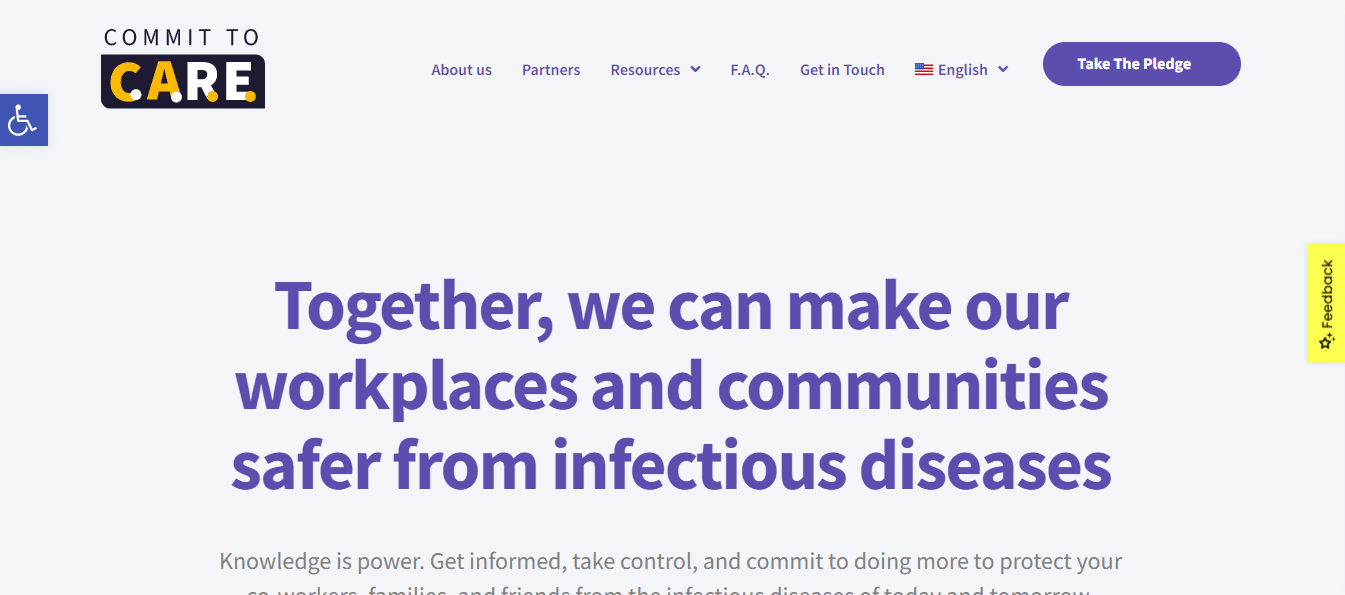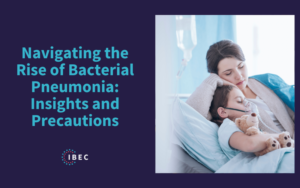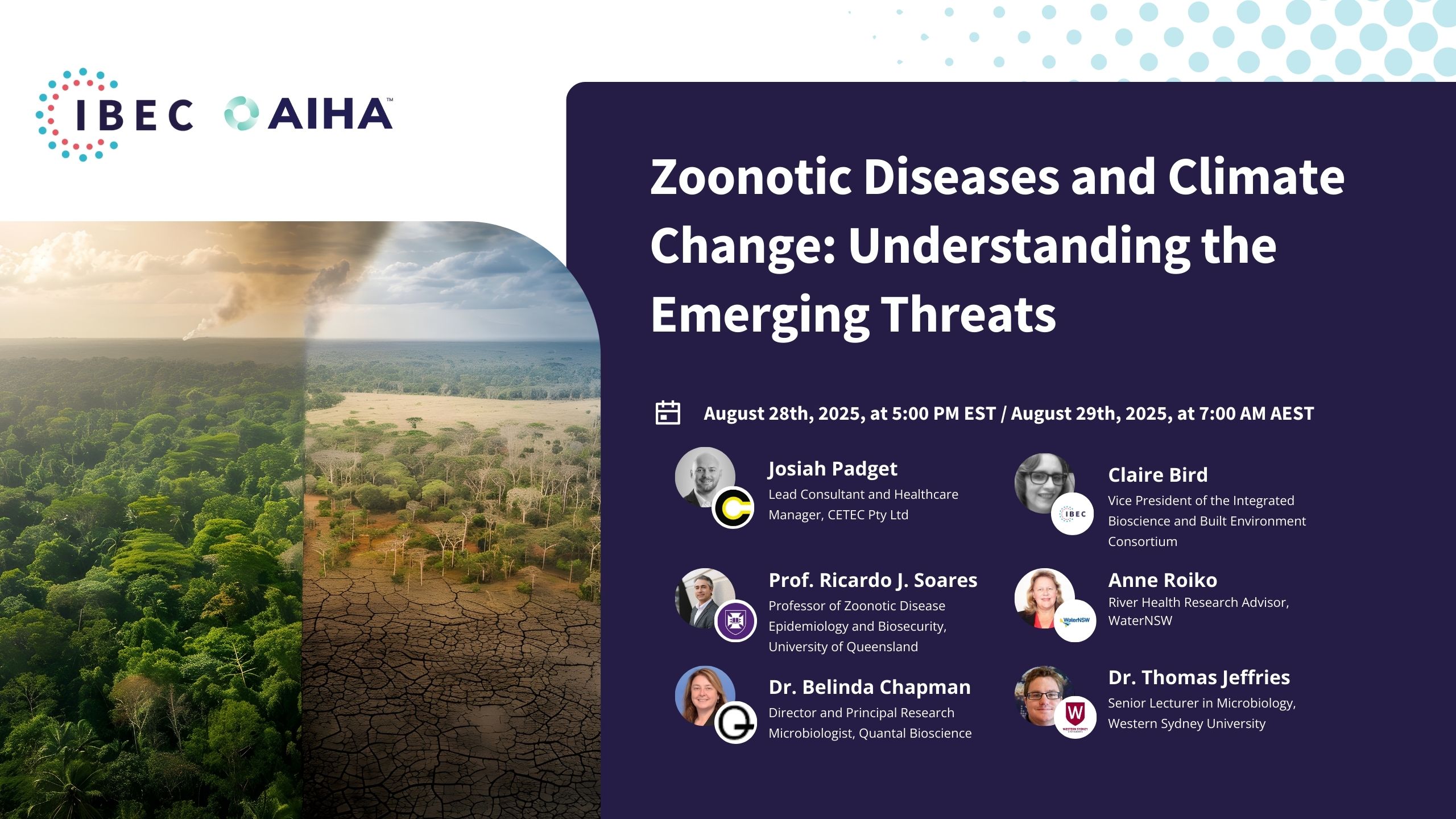New Commit To C.A.R.E. Resources Deliver Innovative Indoor Air Quality Solutions for Safer Workplaces

The Commit to C.A.R.E initiative
The Integrated Bioscience and Built Environment Consortium (IBEC) and The American Industrial Hygiene Association (AIHA), two leading organizations committed to promoting occupational and environmental health and safety, have collaborated to introduce new indoor air quality resources to enhance workplace safety from infectious diseases.
The indoor air quality resources
Theresources are now available on the Commit To C.A.R.E. website, a public education resource that provides a broad range of free, science-based materials to help businesses improve indoor air quality and communities combat public health threats such as COVID-19, flu, and measles. Thanks to continued funding from the Centers for Disease Control and Prevention (CDC) / NIOSH, AIHA received $110,000 in late 2022 to develop additional materials and services that would assist organizations in addressing the ongoing public health threat from COVID-19 while also preparing for future pandemics and epidemics. Since 2021, the CDC grant through the NIOSH cooperative agreement has awarded AIHA a total of $620,000 in grants to create resources for the Commit To C.A.R.E. program.
The Commit To C.A.R.E. website offers resources in three categories: Risk Assessment Resources, Indoor Air Quality Resources, and Vaccines & Testing Resources. The Indoor Air Quality Resources comprise videos and knowledge products addressing the multiple health risks of poor indoor air quality.
These materials include tips to enhance the ventilation and filtration inside the built space for improved indoor air quality, guidance on choosing supplemental technologies for disinfection, and systems such as in-room air cleaners and germicidal UV light, with easy-to-follow formulas on how to determine the best technology for your space.
The new resources are available in English and Spanish. The rest of therisk assessment and indoor air quality video trainings are available in nine languages, including French, Vietnamese, and Mandarin. Additionally, comprehensive workplace and community resources from the CDC, IBEC, and AIHA are accessible on Commit2CARE.org.
“Creating easy-to-understand and implement educational resources camped firmly in science is critical to ensuring that workers and customers can stay healthy and better protected from airborne infectious diseases,” said IBEC’s Chief Science Officer, Kenneth F. Martinez, CIH. “Our collaboration with AIHA on the Commit To C.A.R.E. initiative has resulted in a suite of easy-to-understand educational resources for the public, which we hope will help to support and protect communities from the real threat of any infectious airborne disease.”
Where to find the indoor air quality resources
To access the free multimedia resources, including checklists, posters, flyers, and videos, visit Commit2Care.org.
Related Blogposts
How Climate Change is Propelling the Spread of Infectious Disease
By Stephane Bilodeau, Eng., Ph.D., FEC, Chief Science Officer at IBECClimate change is not only an ecological crisis; it fundamentally alters public health dynamics worldwide…
IBEC Statement on the Quarantine of Cargo Ship in Argentina Due to Suspected Mpox Case
The recent news regarding the quarantine of a cargo ship near Argentina’s Rosario Port due to a suspected case of mpox underscores the continued global…
Interdisciplinary Collaboration in Environmental Science: Pioneering Health Solutions with IBEC’s New CSO
The Integrated Bioscience and Built Environment Consortium (IBEC) proudly introduces its new Chief Scientific Officer (CSO), Stephane Bilodeau. Bringing over 25 years of diverse experience…
Navigating the Rise of Bacterial Pneumonia: Insights and Precautions
Navigating the Rise of Bacterial Pneumonia: Insights and Precautions As winter’s chill sets in, health professionals and organizations brace for the annual uptick in respiratory…
New COVID-19 Variant JN.1 Raises in the United States
JN.1 is a highly contagious, fast-spreading subvariant of omicron that has become the dominant strain in the country. According to data from the Centers for…
Pioneering Steps to Control Infectious Aerosols: Dr. Claire Bird Offers Expert Insight on ASHRAE’s New Draft Standard
As we navigate through the challenges posed by the COVID-19 pandemic and other airborne diseases, there is a dire need to implement measures that will…
IBEC Takes the Lead in Developing a Framework for Reducing Indoor Pathogen Transmission
Dear IBEC Partners and Supporters, As we continue to navigate the ongoing threat of airborne pathogens transmission in our shared indoor communities, it’s more important…
Staying Ahead of Severe GAS Infections and Other Secondary Bacterial Infections
Severe Group A Streptococcal (GAS) infections, including invasive disease (iGAS), can lead to life-threatening illness and death. CDC is looking into an increase in…
Industry Leader L’Oréal Pledges to Support Commit to C.A.R.E.
Industry Leader L’Oréal Pledges to Support Commit to C.A.R.E. With health experts warning of the triple threat of the continued spread of new COVID-19…
C.L.E.A.N. Lessons Learned: How to protect the healthcare system from current and future pandemics
The COVID-19 pandemic caught the world off guard. Health organizations all over the globe rushed into a quick response to protect people from the threat…










